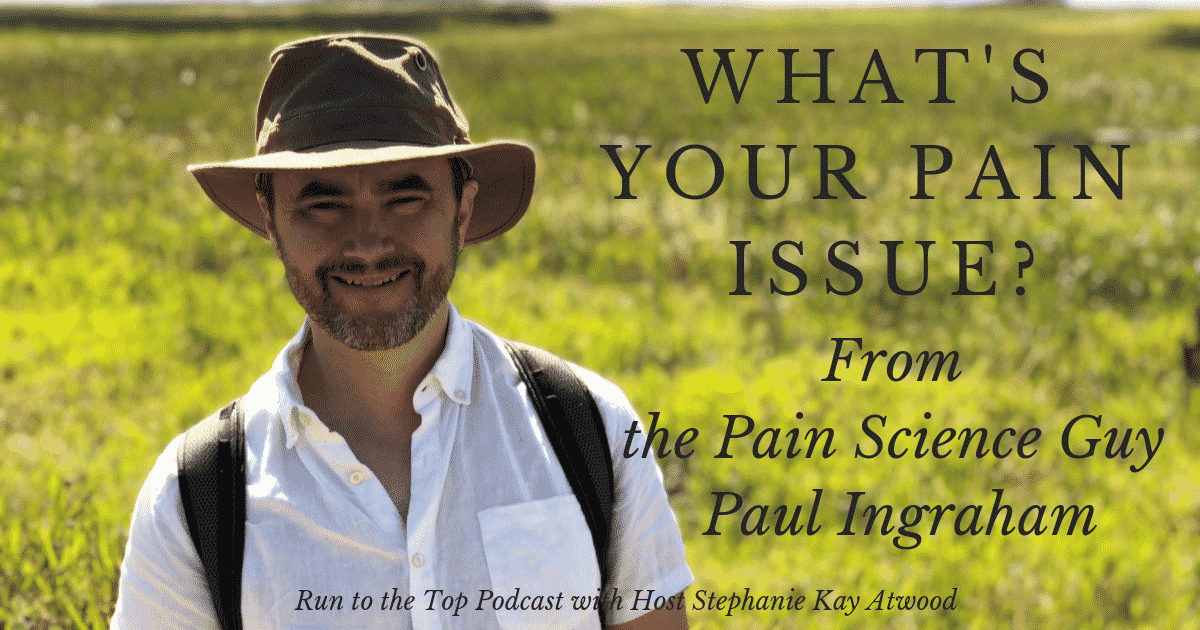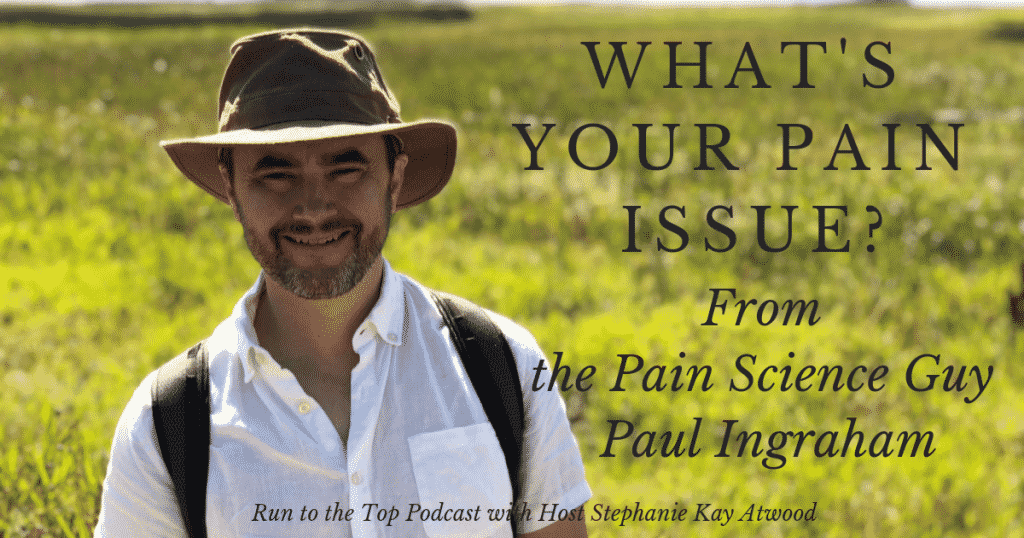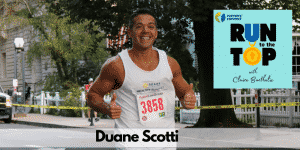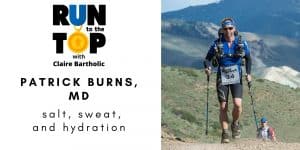Paul Ingraham: The Pain Science Guy
Running Pain: Shin Splints. ITB Syndrome. Patellofemoral Syndrome. The dreaded Plantar Fasciitis…
With even the slightest of niggles, we often keep ourselves up at night assuming we are developing any, or maybe even ALL of these injuries. But what are they exactly? And, as importantly, what aren’t they? How are they really caused and how does our perception of pain influence our recovery and rehab?
Today’s episode features Paul Ingraham, an expert on pain who publishes PainScience.com full-time, a popular website about the science of aches and pains and injuries, especially running injuries. Paul has been researching pain for many years and in this episode, he shares how his encounter with a grizzly bear on an epic hike is directly related to his interest and research into IT Band injuries and other sports injuries resulting in major pain.
An expert on running pain
Paul, a writer and former massage therapist in Vancouver, Canada, has experienced many of these painful injuries personally, so he knows firsthand how painful and disruptive they can be. He’s written books about four running injuries: plantar fasciitis, shin splints, IT band syndrome and patellofemoral pain syndrome. Paul ran a busy massage practice in Vancouver for ten years before leaving due to a storm of regulatory controversy over his writing. That story was finally told publicly for the first time just recently at
painscience.com
and we will learn more of the details in this interview.
“The number one prevention method is: Don’t do too much too soon; don’t overdo it.”
Although Paul grew up believing in everything from chakras to astral projection, studying sports medicine turned him into a skeptic and a debunker. He is pushing fifty and suffers from serious chronic, undiagnosed pain, but he’s still a regular at the gym, a runner, and obsessively plays the sport of Ultimate Frisbee. He’s also a programmer, a gamer, and a science fiction fan.
Questions Paul is asked:
3:43 First Four:
- How old are you?
- Where were you born?
- Where do you live now?
- What is your favorite race distance or type of race?
6:14 What can you tell us about IT Band issues, Patellofemoral Syndrome, Plantar Fasciitis, and shin splints?
7:10 How did IT Band issues play into your grizzly bear encounter?
15:43 How can we prevent IT Band Syndrome?
17:05 Is body weight a factor?
19:23 What’s the difference between IT Band Syndrome and Patellofemoral Syndrome?
21:00 Can IT Band show up in other areas of the body?
21:59 How does the Sciatic fit into IT Band Syndrome or Patellofemoral Syndrome?
22:31 What can you tell us about Plantar Fasciitis?
27:44 Where can a runner go to get assistance and information on these issues?
31:39 What about Shin Splints?
33:26 What are some of the different types of shin splints people might be experiencing?
36:22 What about massage and especially for pain therapy?
39:07 How did writing critically about massage and chiropractic affect your massage practice?
43:25 How does ‘mind over matter’ influence injury rehab and is it possible to give the brain a different message?
48:09 How can we re-sensitize or de-sensitize our brains?
55:01 Any final thoughts?
58:20 Final Kick Round:
- What is your favorite local training run or outing (location, starting point, parking, distance, terrain and safety issues)?
- Favorite running or health related book(s)?
- Words of Wisdom or Humor?
- Who or what would you like to have featured on the Run To The Top podcast?
Quotes by Paul:
“Everybody is cynical about ‘Dr. Google’ these days and it’s a problem to try to educate yourself online, but at the same time, it’s often all we’ve got as a starting point.”
“The number one prevention method is: Don’t do too much too soon; don’t overdo it.”
“The factors in whether or not you’re going to get an injury running are training load, inexperience, and previous injury. The thing that puts you most at risk is that you’ve been hurt before.”
“GOOD Physical Therapists, Chiropractors, and Massage Therapists, if they’re good at their jobs, the good ones are all great resources.”
“Whether or not you get shin pain has surprisingly little to do with how hard you pound the ground.”
“If you have escalating shin pain and an acutely tender meaty part of your shin, go to the hospital. That is nothing to mess around with. That’s progressive and potentially very serious.”
Take a Listen on Your Next Run
Want more awesome interviews and advice?
Subscribe to our iTunes channel
Mentioned in this podcast:
Run To The Top Winners Circle Facebook Community
Vancouver Seawall Running Path
Book: Good To Go by Christie Aschwanden
Follow Paul:
We really hope you’ve enjoyed this episode of Run to the Top.
The best way you can show your support of the show is to share this podcast with your family and friends and share it on your Facebook, Twitter, or any other social media channel you use.
If more people who know about the podcast and download the episodes, it means I can reach out to and get through to the top running influencers, to bring them on and share their advice, which hopefully makes the show even more enjoyable for you!
—
Thank you to our sponsors for supporting Run to the Top
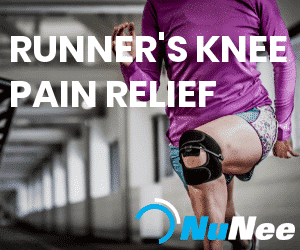
Don’t let knee pain keep you from completing your long runs, or worse, sideline you altogether.
An innovative new product called NuNee can help. NuNee is designed specifically to relieve that dreaded Runner’s Knee pain. Let NuNee help you get back to running without knee pain.
Available today at NuNeeShop.com. Use code RC20 for a 20% discount.

